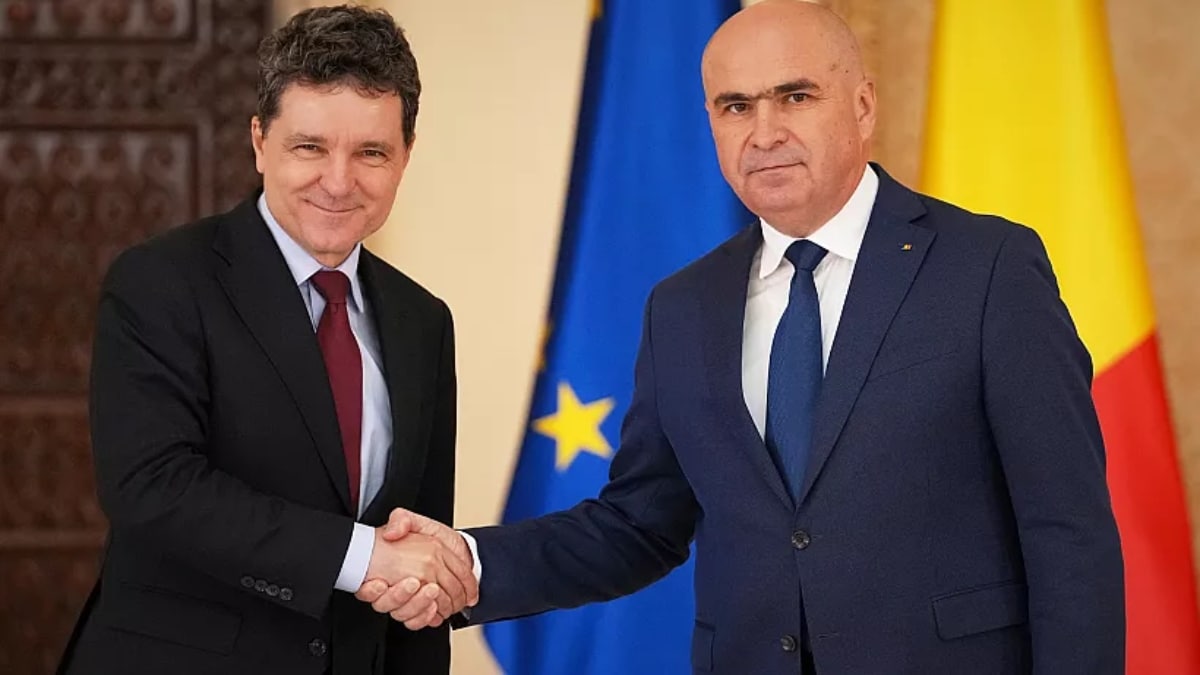Romania’s President Nicusor Dan nominated Ilie Bolojan, leader of the National Liberal Party, after weeks of coalition talks. Now, the biggest challenge in the new government’s hands will be tackling the budget crisisread more
Romania’s new pro-Western President,
Nicusor Dan
, nominated Ilie Bolojan, leader of the pro-European National Liberal Party (PNL), as the country’s next prime minister. The move was announced on Friday, marking an end to the weeks of political uncertainty following the annulled December presidential elections.
The 56-year-old centre-right leader was serving the role of Senate president and is known for his reformist approach and administrative discipline. It is pertinent to note that Bolojan had previously served as acting president from February to May, when Dan defeated a hard-right opponent in a heated
presidential election rerun
.
The nomination came as Romania, a European Union and NATO member state, is seeking to end a protracted political crisis that has gripped the nation since last year. Bolojan was nominated following a fresh round of talks between Dan and PNL. The biggest challenge facing Bolojan now will be taking care of the budget crisis in the country.
The budget crisis: Bolojan’s biggest challenge
The 56-year-old leader will be tasked with tackling Romania’s dire finances and reconciling the divided EU member. The country’s budget deficit stood at 9.3 per cent at the end of last year, making it the highest in the European Union, AFP reported.
In a press conference last week, Bolojan said Romania was “in a complicated situation”, adding that the incoming government would have to resort to “unpopular measures” that could include cutting public spending and imposing tax rises.
Meanwhile, Political scientist Sergiu Miscoiu told AFP that Bolojan was “the person best placed to take unpopular measures to tackle the serious budget crisis”. However, analysts also point out that apart from a brief time as interim president, he had “no experience in national politics”.
Apart from this,
deep social divisions
in the nation were also made clear by the controversies that surrounded the presidential election. According to Cristian Andrei, a Bucharest-based political consultant, the new government will face the challenge of reaching a longer-term consensus over already delayed state reforms.
“There is only a disputed agreement on very short-term measures for the economic and budget crisis,” the political consultant told The Associated Press. “If the short-term measures come with a social cost, inflation … (and) will not be met by profound changes in policies and institutions, then the political crisis will loom over the next years and (future) elections,” he furthered.
What comes next
Bolojan’s nomination will now need to be approved by the country’s parliament. According to Euro News, his government is expected to be comprised of the leftist Social Democratic Party, or PSD, the PNL, the reformist Save Romania Union party, and the small ethnic Hungarian UDMR party.
Ahead of his nomination, the PSD has pushed for a power-sharing agreement that would see a rotation of the prime ministerial post. While speaking after being nominated for the prime ministerial position, Bolojan said he’s “fully aware of the great responsibility” the role will bring and acknowledged it “will not be an easy undertaking.”
“I will pursue three priorities: to restore order to the country’s finances, to work toward good governance that creates conditions for development in Romania, and … to show proper respect to the Romanian people,” he furthered.
While the far-right parties recently won a third of the parliament seats, they were kept out of the talks to form a new government. Defeated presidential candidate
George Simion
labelled the move as “a disgrace and an insult”. Meanwhile, the European Union has voiced concerns over the rise of Eurosceptic parties in NATO member Romania that are opposed to sending military aid to Ukraine.
With inputs from agencies.
